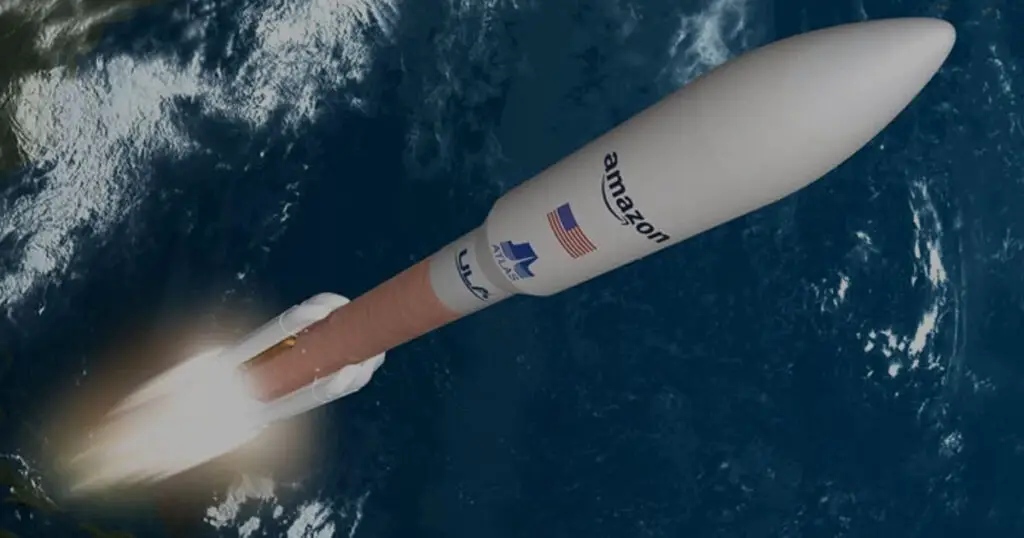
Amazon is gearing up for a significant step in its ambitious Project Kuiper, set to launch two satellites in its inaugural test mission this Friday. This strategic move is part of Amazon’s grand vision to deliver internet services from space, putting it in direct competition with Elon Musk’s Starlink service.
The launch operation will be entrusted to the Atlas V rocket, orchestrated by the United Launch Alliance (ULA), and it’s slated to commence within a two-hour window, beginning at 2:00 pm local time (1800 GMT) from the Kennedy Space Center in Florida.
Once fully operational, Amazon’s Project Kuiper aims to offer rapid and cost-effective broadband connectivity to underserved and unserved communities globally. Their vision revolves around deploying an extensive constellation of over 3,200 satellites in low Earth orbit (LEO) to accomplish this mission.
Remarkably, this marks Amazon’s maiden voyage into space satellite deployment, and Rajeev Badyal, Project Kuiper’s vice president of technology, emphasizes that they are poised to gain invaluable insights regardless of the mission’s outcome.
The initial operational satellites for Project Kuiper are slated for launch in early 2024, with the first customer tests anticipated by the end of the following year. The upcoming test mission on Friday aims to establish contact with Earth-based probes, unfurl solar panels, and verify the proper functioning of all instruments at designated temperatures.
Following the test mission, the two prototypes will be deliberately deorbited and disintegrated within Earth’s atmosphere.
While Musk’s SpaceX is a formidable player in this arena, having launched a substantial fleet of Starlink satellites since 2019, other contenders like OneWeb and now Amazon are vying to connect remote and underserved regions worldwide, including those in conflict zones or disaster-stricken areas.
The strategic importance of space internet services has also captured the attention of governments. China, for instance, plans an impressive constellation of 13,000 satellites known as GuoWang, Canada’s Telesat is eyeing an additional 300, and German startup Rivada has its sights set on 600. These endeavors are in addition to the European Union’s Iris project comprising 170 satellites and the planned deployment of 300-500 satellites by the US military’s Space Development initiative.





